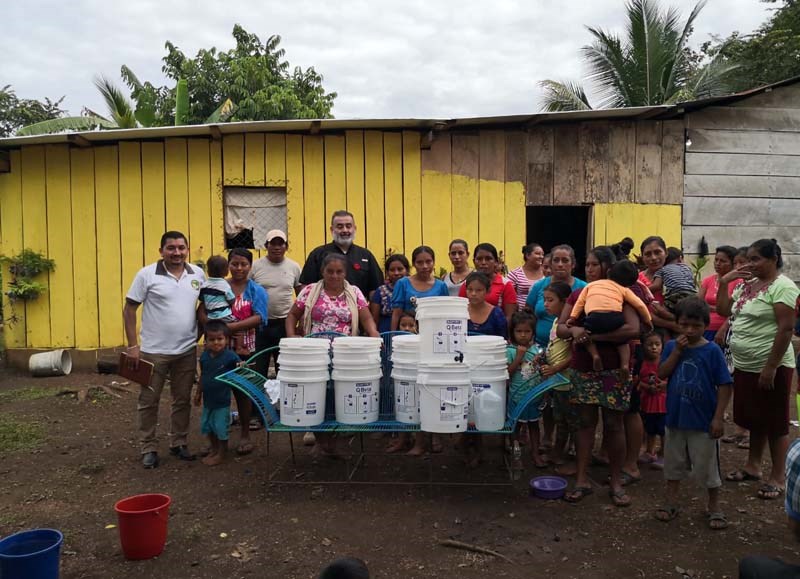Prince George resident Cristian Silva is changing the lives of people in northern Guatemala by providing water filters to rural and remote communities, giving them access to clean drinking water.
With the support of residents in Prince George, Silva has turned his mission into a non-profit society called Aketzali Izmal Access to Clean Water Society.
Silva has traveled the world to provide aid to those in crises for decades, and is also a leader with Team Rubicon International, a non-profit that consists of military veterans who help in disaster relief missions.
This past summer Silva participated in a mission called Resolute Sentinel 2022 which was a collaboration with US Southern Command, and the Ministry of Health in Guatemala.
The goal was to provide medical and dental attention to communities in Northern Peten, Guatemala. However, when Silva returned from Guatemala in August he felt like the work wasn’t finished.
“Most of the problems we encountered, it was related to the lack of clean water. I came back and it felt like the mission was unfinished. We knew once we were gone, they were going to get sick again.”
He said in most of these communities children aren’t attending school because they are either busy collecting water or they are sick from drinking water contaminated by parasites and bacteria.
With sponsorship from Selen Alpay at Prince George Canadian Tire and support from MP Todd Doherty and MLA Shirley Bond, Silva returned to Guatemala on his own in September with water purification kits.
Working with the of the Ministry of Health Guatemala and the Organization of American States (OAS) they provide training in water purification to community members.Together they were able to provided 400 water filtration systems and training that impacted over 2000 people.
“We spent time with [the locals] making sure they know how to use the filters, how to clean them, because these filters, if you take care of them, even if you are using them everyday they can last up to three years or longer.”
Silva said at the beginning of this project there were 46 communities in the region representing 20 to 30,000 people who don’t have access to clean water and now there are 38.
He said he came back to Canada asking himself the question “How can we keep this going?” and thus with the help of some community supporters, created the non-profit Aketzali Izmal which means clean water from the sky, in Mayan.
Silva notes that when he started this project he was met with the question, “why not start at home?” as, for example, the Lheidli T’enneh First Nation’s reservation just 30 minutes outside of Prince George has had water issues for many years.
Silva said it is a fair question, but it’s important to understand the people in northern Guatemala have no supports at all.
“If you look at the other circumstances where these people are we are still quite fortunate here because we all have access to water even if it comes in bottles.”
He said these communities are so remote it can take up to 10 to 15 hours to travel just 300 kilometres because oftentimes there’s no roads through very hostile areas and because of this the people also don’t have access to doctors or vaccinations.
Silva said in one community he visited this summer seven women who were pregnant suffered still births.
“Kids are full of parasites and to see little kids with big tummies because of malnutrition and no access to clean water is quite devastating.”
Silva said despite the depth of adversity they face every single day, members of these communities wake up with hope for a better day and smile, thanking their higher power that they are still here and they can keep fighting another day.
“Everybody has been quite helpful and in just a couple of weeks we have a society, we have board members, and we have a bank account,” said Silva.
“Because after every trip you start branching out and thinking there’s more we can do.”
Silva said they also want to be able to include doctors and nurses on the trips so that when they’re visiting communities to teach them about the water filters, they can also provide vaccinations.
“Another goal visiting these communities is empowering women because they are the source of everything and down there. They are key,” said Silva.
“They are the ones raising the kids and working 24/7 and the goal now is to help them develop. We have a project with the OAS to teach them a number of different skills and maybe we can help them come out with their own little businesses.”
Silva will be making a presentation about his work and the new society to his supporters on Jan. 3 at the Central B.C. Railway and Forestry Museum.
He also plans on visiting Guatemala again at the end of January to continue this work.
-with files from Christine Dalgleish

